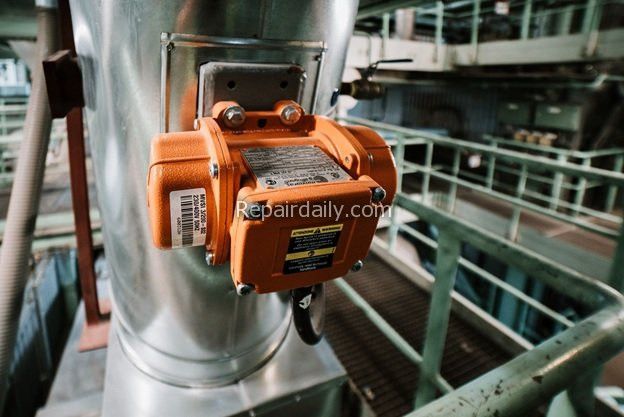

air compressor
If you’re a contractor, hobbyist, technician, or a heavy-duty mechanic, you’re going to have a long, annoying day when you find that your air compressor can’t keep up with any of your air requirements. Nothing is more inconvenient than having to interrupt a project every few minutes to allow your compressor to take time to breathe and follow through.
Luckily for you, our comprehensive air compressor buying guide will assist you in selecting the most appropriate air compressor. Whether it’s a gasoline or diesel generator, rest assured we’re help to help you make the right choice to answer your needs and other projects. Moving on, here a few things you need to know and take into consideration when buying:
1. Horsepower
Before starting, it’s worth noting that marketing people have been exaggerating horsepower ratings to make the big-box stores sell compressors. Due to this, horsepower ratings are considered a reliable way to determine the compressor size you’ll be needing. To be fair, industrial compressors are normally correctly rated, which is why a 5 HP industrial compressor is typically triple the size and cost of a normal hobby-type 5 HP compressor.
Looking at how much electrical power it takes to run, it’s one way to say whether you’re looking at actual or overrated HP. On a 220 volt circuit, an actual 5 HP motor will draw around 24 amps, while most others will operate on a standard 15 amp 110 volt circuit.
2. Tank Size
Does air compressor size matter? To be honest, not a whole lot. Air isn’t generated by a compressor tank. It just has the ability to store air. It’s much more important to have a large enough pump and motor because, no matter how small your tank will be, if it’s generating the air you’ll be needing to use, then you will not have to worry about running out of air.
However, if you only use air on a regular basis, you can be able to save money by purchasing a smaller compressor with a larger tank. For example, if your compressor generates 10 CFM on a continuous basis, you can then extract 20 CFM from the tank in no time at all.
If you want to operate a tool like a sander steadily, you’ll need to produce the appropriate amount of air needed. A compressor with a smaller tank, since it’s more compact, will fill up pressure faster, while a bigger tank doesn’t start and end as much, while also cooling the air a little better too.
3. Life Expectancy
Some contractor compressor brands are built to last ten times as long compared to other air compressors. What’s also great is the price difference is typically negligible. It’s important to remember to not buy one unless the salesperson can tell you how long it will last. Get him to contact the producer if he doesn’t remember. As a general rule, for every dollar spent on a better or larger compressor, you can save at least another two dollars if you’re looking at it in the long term. Additionally, you can purchase a larger compressor to ensure you get a long lifespan. This is something you should always consider how much it’ll cost on an hourly basis of total life expectancy.
4. Single or Double Stage Air Compressors
Single-stage compressors have one or two cylinders, each of which pumps air into the tank directly. Air is pumped from one cylinder into another and then into the tank in two-stage compressors, which have at least two cylinders. At around 90 PSI, a conventional two-stage, two-cylinder pump pushes air through a cooling tube and into the smaller second-stage cylinder, before delivering 175 PSI to the tank.
In actuality, the key reason why you should purchase a two-stage air compressor is if you need high pressure, which is not needed in many applications. As a result, a two-stage compressor is possibly unnecessary. Some people assume two-stage is superior to a single-stage, but it isn’t always the case. Both of them have good and bad offerings. For the most part, high quality single-stage compressors are the preferable options to two-stage ones from a big-box shop.
5. Cubic Feet Per Minute (CFM)
Any air tool needs a certain amount of air to function properly. The amount of air generated by a compressor is measured in CFM. On a compressor, you’ll see multiple ratings for CFM at various pressures measured. Oftenly, you’ll see high ratings for your displacements, which can be measured based on the pump size and pace of the compressor. Despite that, the ranking isn’t much of a big deal due to the fact that it ignores the inefficiencies of the pump. Since most tools need around 90 PSI, the most critical CFM rating focuses on the one at pressure, and like the typical HP rating, they are always underestimated.
I'm so excited to tackle all my home improvement projects! From plumbing to DIY and cleaning - I'm ready to get down to work! #homerepair #homecleaning #plumbing #diy #fixerupper #realestate #renovation #interiordesign #farmhouse #diy #homedecor #hgtv #home #farmhousedecor #modernfarmhouse #farmhousestyle #fixerupperstyle #fixandflip #homerenovation #realestateinvesting #beforeandafter #homesweethome #remodel #realestateinvestor #interior #realtor #joannagaines #flippinghouses #countryliving #design #homedesign #farmhouseinspired #investmentproperty #bhghome #renovationproject #farmhousekitchen #homeimprovement #farmhouseliving #cottagestyle #decor #realestateagent #magnoliahome #homeinspo #magnoliamarket #kitchendesign #dreamhome #shiplap #construction #houseflipping #investor #farmhousedesign #architecture #farmhousechic #homereno #rusticdecor #reno #kitchenremodel #webuyhouses #magnoliatable #rentalproperty #fixerupperinspired #newhome #interiors #homeremodel
